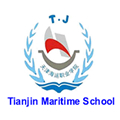亚非国际发展联盟
联盟的现状
what’s this
- it is a non-governmental, non-profit consortium
- brings together universities, research laboratories and companies
Exchange program for education & training
- learning the Chinese language is essential for African students
- to do a practical internship of 3 to 6 months in China is the best way to strengthen economic relations with China
Sustainable development
Legal migration
Why choose Tunisia
- Tunisia has a strategic geographical position in Africa.
- Tunisia is one of the most advanced countries in Africa, where the rate of enrollment in higher education is higher than 30%, while the average in Africa is about 10%, which proves that Tunisia is way ahead of the rest of the continent.
- Tunisia has great potential to be a Gateway for Africa education platform
Proposed services
- Documentation services, mobility awareness sessions, personalized interviews and support.
- good preparation at the start
- Linguistic and cultural preparation
- Organization of the trip (international student card visa, insurance …)
- accompaniment during the mission (accommodation …)
- Summary of the internship
african population in 2050
2.4 Billion
Number of students 2020
+10 millions
African mobility in the world
0.5 millions
China scholarships for african Students
+300%
China and new African international relations
in a context characterized by Western domination / rivalry in all areas, especially economic and political, that China emerged in the early 2000s as a major player in Africa. The climax of this rise was the organization in November 2006 of the Forum on China-Africa Cooperation (FOCAC) in Beijing, which recorded the participation of more African heads of state than at any other summit. Are these developments sudden? What does China want? Does Africa win or lose in this relationship?
On the economic front, China has reoriented its relations with Africa by giving priority not more to aid, but rather to economic and commercial exchanges. First, it is true that for fifteen years, these exchanges have been gaining in intensity and benefiting Africa. Today, China has already become Africa’s largest trading partner. Trade between the African continent and China increased from $ 900 million in 1990 to more than $ 37 billion in 2005 and was around $ 50 billion in 2007. It would be the third largest investor in Africa after the European Union and United States. China’s investment in Africa is equivalent to that of the ASEAN countries and was $ 1.18 billion in mid-2006. The amount of its loans to Africa is now in competition with those provided by the World Bank. The latter estimates that although Africa has experienced an average annual growth rate of 6% since the beginning of the 2000s, half of this growth is attributable to China. On the other hand, China needs huge African mineral and oil resources. It seems obvious that China’s main interest in Africa is driven by the search for these resources. Thus, among the main African partners of China, the oil states like Angola, Sudan, Nigeria, Equatorial Guinea, Congo, Libya and South Africa occupy the lead. The economic interest is not limited to these resources, however, as it extends to activities as diverse as tourism, satellite launching, infrastructure construction, trade, agriculture and many other areas. .















